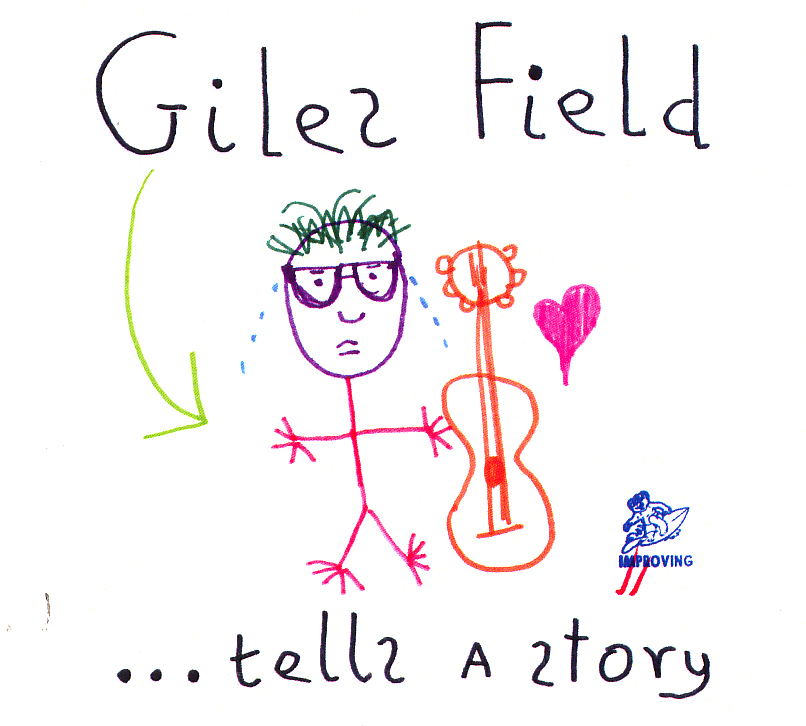Giles Field’s first record, Too Many Love Songs, set the mould for his idiosyncratic brand of folk music – ‘anti-folk’, to use Field’s own description. Field painted himself as the ultimate hopeless romantic, yearning relentlessly for romantic satisfaction whenever the opportunity presented itself. Success or failure, Field had a story to tell.
Giles Field’s first record, Too Many Love Songs, set the mould for his idiosyncratic brand of folk music – ‘anti-folk’, to use Field’s own description. Field painted himself as the ultimate hopeless romantic, yearning relentlessly for romantic satisfaction whenever the opportunity presented itself. Success or failure, Field had a story to tell.
On his second album, Tells A Story, Field stays on message: the album navigates a path through Field’s emotional insecurities, his dreams and musings. Speaking Loser sets the scene for Field’s journey: sober and in an advanced state of discomfort at a party, he meets a woman and converses in the language of ‘loser’. From there the listener rides Field’s emotional rollercoaster: on You Don’t Know Me At All, Field erects a psychological barrier between himself and the object of his affection; in the delightfully referential If Melbourne Was A Lady he wanders through a rich lyrical paddock, leading the listener a merry dance through metaphor and direct observation.
The skiffle-ish Illegal Love is plagued with emotional conundrum: is there something here, or is it a dream? Field protests “it’s so wrong it must be illegal”, but the illegality is, at best, mere superficial incongruity. Lock Of Hair is a delicate love song in the finest songwriting tradition; Don’t Try To Kiss Me trades love for rejection, the pain of disappointment dripping from Field’s every lyric. On The Hardest Thing I’ll Ever Have To Do Field dabbles in the blues, as he endeavours to make sense of absence; Sunset is the classic tale of love slipping through the fingertips.
By the time of Get Up, Field is casting his glance around, contemplating all the mundane stuff of life that just doesn’t seem to be happening in a hurry; on Friday 5pm Field is on top of his emotional rollercoaster, eagerly waiting for the next day. Winner is all shucks and hugs and contentment; why aren’t all love songs this satisfying? Because not everyone has Giles Field’s unique perspective, that’s why.
Beneath Field’s wry humour lies a humanity that the ordinary singer songwriter can never understand. Field lays the emotional peculiarities of his life naked for the world to see. It’s tragic, painful and ultimately beautiful. Giles Field tells a mean story, and writes an even better song.







